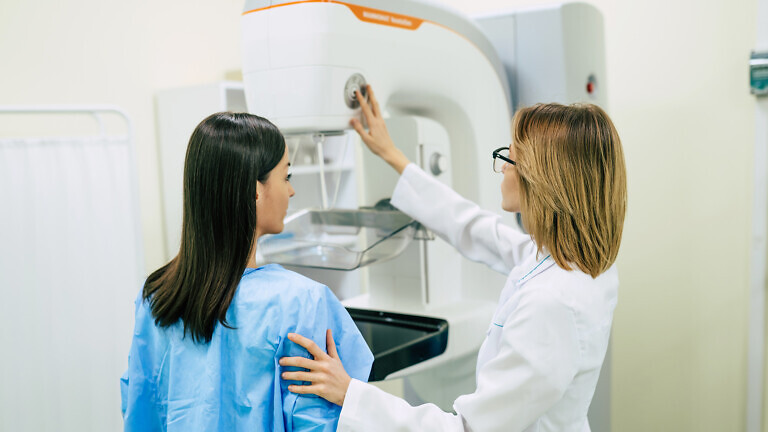Alex Fairweather looks at how technology and artificial intelligence can transform private practice.
“We think that AI is poised to transform medicine, delivering new, assistive technologies that will empower doctors to better serve their patients. Machine learning has dozens of possible application areas, but healthcare stands out as a remarkable opportunity to benefit people.” Google Health
Private practice faces unprecedented challenges in today’s landscape, from rising administrative burdens to intensifying competition. However, artificial intelligence and emerging technology offer powerful tools to help doctors thrive. These innovations can revolutionise patient acquisition, enhance clinical care, streamline operations, and develop the essential business skills that medical school never taught.
AI-enhanced patient acquisition and engagement
Patient acquisition strategies have evolved beyond traditional marketing approaches. AI-powered platforms enable highly personalised marketing campaigns by analysing demographics, behaviour, and search histories to create customised messages resonating with prospective patients. Practices can focus their marketing efforts, leading to higher conversion rates and more efficient resource utilisation.
Marketing automation plays a crucial role in maintaining consistent patient engagement through targeted email campaigns, social media posts and SMS reminders. AI algorithms analyse patient engagement metrics to determine optimal timing for marketing messages and identify content that resonates with different patient segments. Predictive analytics allows healthcare providers to anticipate patient needs before they arise, identifying individuals at risk for certain conditions and delivering timely communication and treatment options.
AI-powered chatbots provide 24/7 patient engagement, answering inquiries instantly, assisting with appointment scheduling and providing crucial information. These virtual assistants handle multiple interactions simultaneously while personalising responses based on individual patient data, ensuring potential patients can access practice information even outside business hours. Whilst chatbots won’t replace experienced practice staff, they can help alleviate basic repetitive conversations.

Clinical decision support and treatment enhancement
AI-driven clinical tools are transforming patient care. These systems are trained on extensive patient data, comprehensive medical literature, and real-time information to offer evidence-based recommendations to clinicians. Machine learning algorithms assist in diagnosing medical conditions, proposing tailored treatment plans and predicting potential outcomes through multifaceted analysis of diverse datasets.
Electronic Health Records integration with AI tools such as scribes provides automated documentation and reduced administrative burden through ambient intelligence for real-time clinical note-taking.
Telemedicine platforms enhanced with AI capabilities expand practice reach while improving patient access to care. Remote patient monitoring enables continuous care management, with AI-enhanced telehealth providing automated data interpretation and clinical insights. These virtual consultation capabilities have proven particularly valuable for maintaining patient relationships.
Practice management and operational efficiency
Intelligent automation of time-consuming tasks transforms practice management. Workflow optimisation through process automation and intelligent scheduling streamlines staff allocation, appointment scheduling, and routine administrative tasks.
Predictive analytics optimises resource allocation across staffing levels, medical supplies, and facility utilisation by analysing historical data, current trends and future projections. AI-driven billing and coding systems provide automated diagnostic code suggestions and streamlined revenue cycle management, while inventory management systems use predictive analytics for supply chain optimisation.
Practice management software integration connects all operational aspects, providing scalability and remote access capabilities. Data analytics dashboards enable practice performance monitoring and business intelligence, while insurance verification and claims processing reduce administrative overhead.
Business skills development and training
The gap between clinical training and business competency represents a critical challenge for doctors. Medical schools traditionally focus on clinical skills while providing minimal business education, but modern private practice demands both.
Business education addresses essential knowledge in management, with leading establishments recognising that doctors require an understanding of both the clinical and business aspects of healthcare delivery.
Digital transformation education, or at least hiring talent with specific knowledge, becomes increasingly important as practices implement new technologies. Change management skills and technology integration training ensure the successful adoption of AI and other advanced systems while maintaining focus on patient care.
Implementation and future outlook
Successful adoption of technology in private practice works best through phased implementation, allowing teams to adapt while ensuring that patient care and communication remain at the forefront. Prioritising comprehensive staff training and change management supports a smooth transition and preserves the compassionate environment essential to quality healthcare. Regularly tracking outcomes, such as patient satisfaction and operational improvements, helps ensure that technology solutions serve both clinical and human needs.
Integrating AI alongside emerging technologies empowers practices with smarter workflows and more responsive care. These tools are most effective when they amplify rather than replace the expertise, empathy, and communication central to the doctor-patient relationship. When used thoughtfully, technology and innovations support independent physicians in delivering more personalised, attentive care.
Ultimately, technology should be viewed not as a substitute for human connection but as a partner that enhances it. By combining clinical excellence, business skills, and digital tools, physicians can build sustainable, thriving practices that keep meaningful patient relationships at the heart of healthcare.



